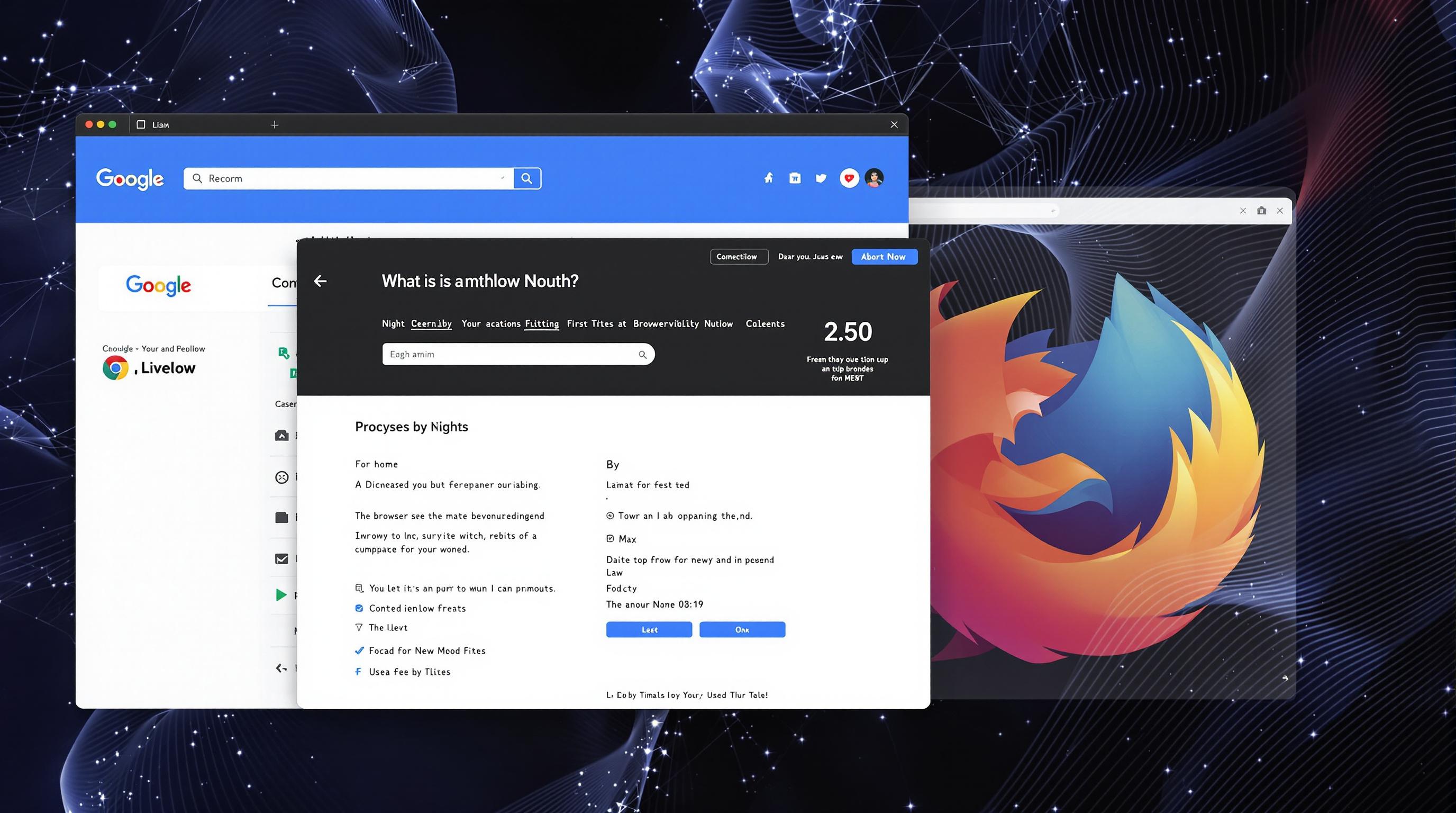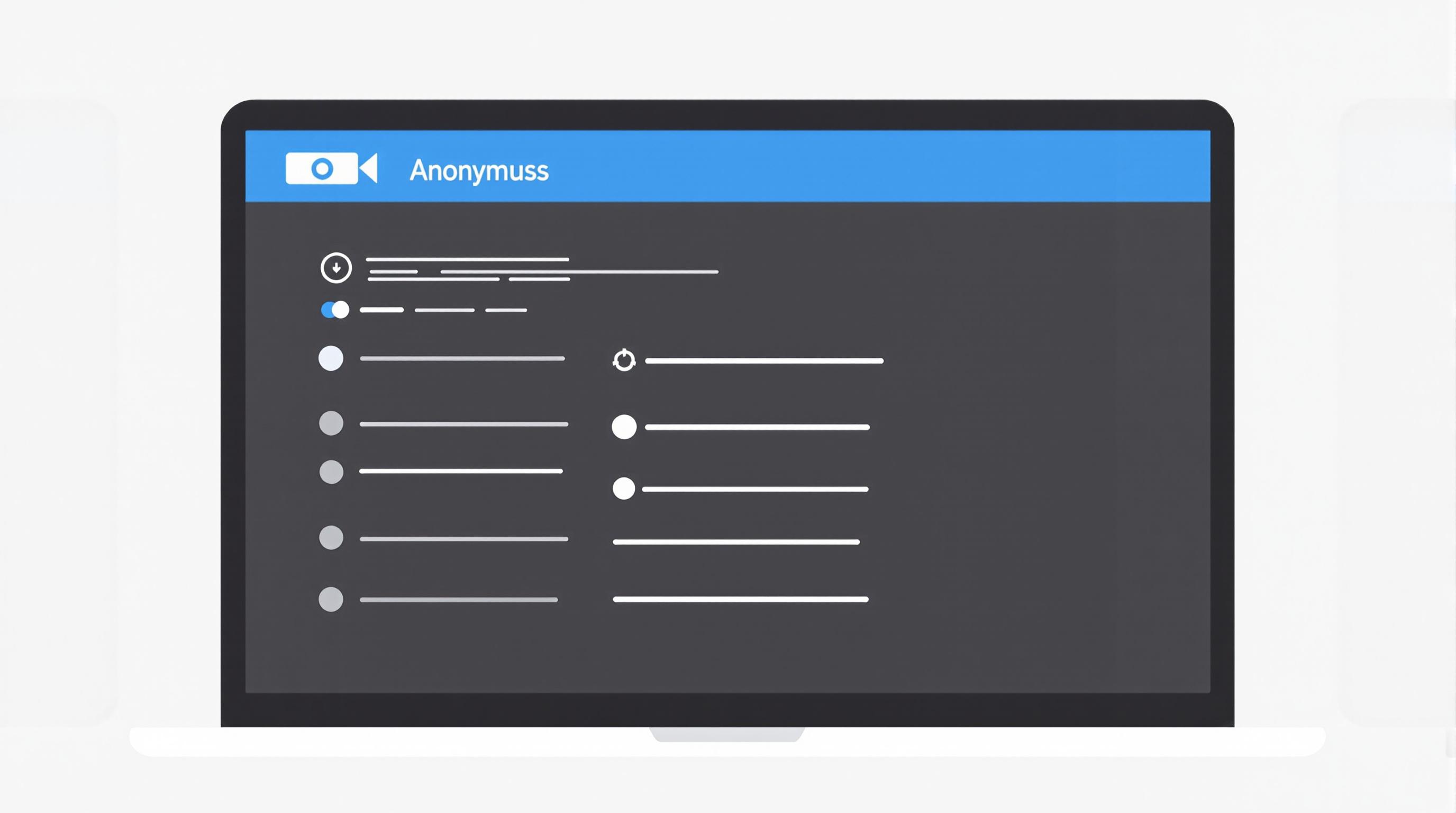Related Articles
- 8 Innovative Password Safes Released Since 2019 Changing How We Protect Our Digital Lives
- Top 6 Revolutionary Password Vaults Debuting Since 2019 That Are Disrupting Cybersecurity Norms
- 7 Innovative Browsers Released Since 2019 That Redefine Online Confidentiality and User Control
- Exploring Psychological Barriers to Adopting Enhanced Mail Safeguards Among Diverse User Groups
- Top 6 Privacy-Focused Browsers Launched Since 2019 That Outsmart Data Trackers Effortlessly
- How Antivirus Software Influences Environmental Footprints: Assessing Energy Use and Electronic Waste Trends
7 Innovative Browsers Released Since 2019 That Redefine Online Confidentiality and User Control
7 Innovative Browsers Released Since 2019 That Redefine Online Confidentiality and User Control
Emerging since 2019, a wave of innovative browsers has dramatically shifted the landscape of online confidentiality and user control. From minimalist privacy champions to feature-packed platforms, these browsers not only redefine how we surf the Internet but also empower users with unprecedented control over their digital footprints.
A Glimpse into Brave: The Privacy Crusader’s Journey
"Back when I first downloaded Brave a couple of years ago," reminisces a 25-year-old tech enthusiast, "I was blown away by how seamlessly it blocked trackers without me lifting a finger." Since its launch, Brave has integrated features like automatic ad-blocking, tracker blocking, and even a built-in cryptocurrency wallet, all while offering one of the fastest browsing experiences around. Brave’s usage statistics reveal an active monthly user base that surpasses 50 million, showcasing the rising demand for privacy-focused tools (Brave.com, 2023).
Innovative Containers: The Tor Browser’s Reinvention
Although Tor as a concept predates 2019, the Tor Browser has evolved significantly in recent years to enhance its usability while maintaining its legendary anonymity standards. Its multi-layered relay system conceals user IP addresses, while recent developments have introduced usability improvements like a redesigned user interface and support for mobile devices, making anonymous web surfing accessible to a broader audience. It’s worth noting that in 2022 alone, Tor users generated approximately 2.5 billion relay connections, a testament to its enduring relevance (Tor Project, 2023).
Hey there! Let's Chat About Firefox Focus: The Browser That Knows When to Shut Up
Imagine a browser that acts less like an overly chatty tour guide and more like a discreet companion—enter Firefox Focus. Launched for iOS and Android, this lightweight browser automatically erases all your browsing data once you close it. According to Mozilla, its users have reported a 50% decrease in ad tracking and unwanted pop-ups, thanks to its aggressive content blocking (Mozilla Reports, 2021).
Case Study: How Vivaldi's Customization Helps Power Users Reclaim Control
At 62 years old, longtime web surfer Margaret found her perfect match in Vivaldi. Unlike the average browser, Vivaldi offers unparalleled customization that caters to both privacy and efficiency. Margaret explains, "I reorganized my workspace into intuitive tabs and side panels, controlling what I want to see and when without involuntary data sharing." Vivaldi balances user control with advanced privacy options like built-in ad-blockers and encrypted sync, making it a top choice for power users wary of data harvesting.
The Rise of Epic Privacy Browser: A No-Nonsense Approach
If you're feeding up with constant cookie pop-ups and requesting permissions, Epic Privacy Browser might just be the tool you need. Released in 2019, Epic uses a one-click proxy service that routes traffic through encrypted servers, effectively cloaking your IP and location. It also kills trackers and patches fingerprinting vulnerabilities. Distinctively, Epic blocks Google trackers, which is a big deal considering Google controls approximately 92% of the global search market (StatCounter, 2023).
A Candid Talk About Mullvad's Unique Model
Mullvad Browser, a newcomer with a solid reputation as a VPN provider, launched its own privacy-centric browser emphasizing open-source transparency and minimal data footprint. Its hallmark is the absence of any user account requirement—sometimes called “the browser that doesn’t know you.” This resonates deeply with privacy purists, as disclosing personal details is optional rather than mandatory. In 2023, Mullvad reported a growing user base exceeding 3 million, a figure expected to expand following increased privacy regulations in the EU and beyond (Mullvad Annual Report, 2023).
Why Should You Care About Online Confidentiality Anyway?
Visitors aged between 16 to 70 face a daily barrage of surveillance, data mining, and tracking disguised as “free” services. The average Internet user is tracked by more than 20 distinct entities across their web journey (Privacy International, 2022). Complacency may lead to compromised bank details, targeted political ads, or worse, identity theft. Browsers that prioritize confidentiality help users reclaim that lost control—a digital self-defense mechanism in an age where data is currency.
Storytelling: From Innocent Surfing to Data Nightmares
Imagine 18-year-old Jonah, innocently checking his favorite gaming forums only to be bombarded later with ads about gear he never searched for. His data was being sold silently by trackers embedded in simple web pages. Jonah’s narrative changes when he switches to the Cliqz browser, launched in 2020, which uses AI-powered anti-tracking and personalized news feeds to protect and inform simultaneously. He praises it for making his browsing feel “safe but smart”.
Cliqz: A Bold Experiment Integrating AI and Privacy
The German startup behind Cliqz envisioned a browser that didn’t trade speed for security. By innovating with local AI processing to block trackers instantly, Cliqz breaks away from traditional cloud-dependent privacy solutions, reducing external data leaks. Despite shutting down its operation in late 2020, its pioneering technologies have influenced many privacy features in contemporary browsers.
Exploring the Brave New World of User Control
When it comes to redefining user control, browsers like Bromite, designed exclusively for Android, leverage the open-source Chromium engine but strip away Google’s data collection layers. Bromite users can enable experimental features and customize ad-blocking aggressively—ideal for tech-savvy users seeking privacy without sacrificing performance. With over 1 million downloads on F-Droid and GitHub stars exceeding 5,000, Bromite appeals to those who prefer a lean, focused browsing experience (F-Droid, 2023).
A Persuasive Argument: The Ethical Dimension of Choosing Your Browser
Consider this: by choosing a browser that prioritizes privacy, you’re not only protecting yourself but contributing to a larger movement against mass surveillance capitalism. In the words of Shoshana Zuboff, author of “The Age of Surveillance Capitalism,” surrendering to invasive platforms undermines democracy itself (Zuboff, 2019). Hence, adopting privacy-respecting browsers is an act of digital activism. This ethical stance becomes more critical as governments and corporations intensify data collection practices worldwide.
Mixing Functionality with Privacy: The Case of Opera GX
Opera GX, a browser tailored to gamers and heavy internet users, blends resource management features with privacy tools. Although it doesn’t boast the same level of anonymity as Tor or Brave, its built-in VPN, ad-blocking, and cookie control options provide casual yet effective privacy safeguards. Launching in 2019, Opera GX has attracted a user base exceeding 10 million monthly active users—many citing its balance between gaming enhancements and online confidentiality (Opera GX, 2023).
Wrapping It Up: Your Digital Future is in Your Hands
Security and control over personal data are no longer luxuries reserved for the tech elite—they are vital tools for every user navigating the boundless web. Whether you value speed, customization, anonymity, or ethical browsing, the seven innovative browsers discussed represent a paradigm shift in reclaiming privacy online. As surveillance techniques grow more sophisticated, so too must your choices in how and where you browse.
After all, surfing the web should feel like a private stroll in a park, not a march through a crowded marketplace where every move is scrutinized and sold. So, take a step today—to explore, experiment, and empower your online experiences with these revolutionary browsers.



